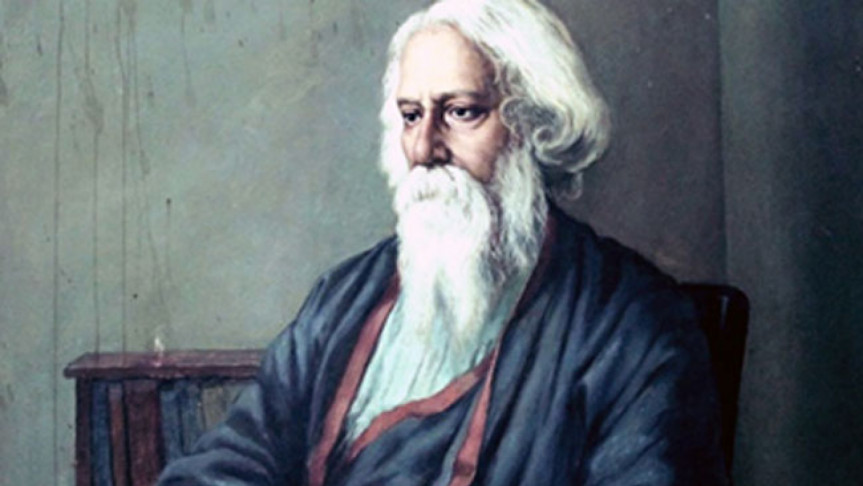Rabindranath imprints his footmarks across Bangladesh

‘Kobiguru’ Rabindranath Tagore had imprinted his footmarks across Bangladesh by visiting many places and staying in some areas for months, according to biography of the poet and different writings on his life and activities.
The Noble Laureate particularly visited the country’s northwestern region for several times and stayed there for months between 1890 and 1937 to look after the Tagore’s Estate (zamindari). He visited many other places in Dhaka, Chattogram, Cumilla, Khulna, Kushtia, Naogaon, Rajshahi, Sylhet and Sirajganj to attend different literary events and social gatherings, reports the BSS.
The writer of Bangladesh’s national anthem visited the capital Dhaka for several times and joined in different functions. He came to Dhaka University (DU) at an invitation of the university authorities to attend the ‘Meaning of Art Conference’ and delivered his speech at Curzon Hall on February 10, 1926.
The poet, who had also strong tie with Bangladesh through family bonding, stayed at Shelaidaha Kuthi Bari, a country house built by his father Maharshi Debendranath Tagore, in Kushtia for over a decade at irregular intervals between 1891 and 1901 for managing the family estates.
During his stay at Shelaidaha Kuthi Bari, he wrote many of his famous poems, essays, songs and short stories. Among those were his signature creations Sonar Tari, Katha o Kahini, Chitra and Chaitali.
In 1892, the poet came to Rajshahi town upon an invitation from Loken Palit, the then Judge of Rajshahi district when Rajshahi Association organised a literary event.
The Noble Laureate visited the northern district Natore twice. For the first time, Rabindranath and Palit visited Natore in a horse-drawn carriage from Rajshahi in 1982 and he again came to Natore in 1897.
Tagore also visited Pabna in 1912. He visited the North Bengal for the last time in 1937 on the occasion of the Punnah ceremony at Patisar.
The poet paid his only visit to Chattogram in mid-June in 1907 for attending a discussion about the formation of the Chattogram Shahityo Parishad (Chittagong Literary Society).
Tagore visited the country’s northwestern district Sylhet in November, 1919 at the invitation of Sylhet Brahmo Samaj, Sylhet Mahila Samity and Anjumane- Islamia. During the visit, he attended many programmes and delivered a speech at the MC College hostel ‘Akankha’. He was accompanied by his son Rathindranath Tagore and daughter-in-law Pratima Devi.
Tagore visited Cumilla with Mahatma Gandhi and stayed at Gandhi Avayasram on November 21 in 1921 while people of this region were active in waging the non-cooperation movement and was protesting the India visit of Prince of Wales.
The ‘Dakshin Dihi Rabindra Complex’ located in the country’s southern district Khulna is bearing a great mark of Kabiguru. In Agrahayan 24, 1290 Bangla year, Tagore got married with the only daughter of Benimadhab Ray Chowdhury and Dakhkhayoni Debi, Bhabatarini in the house.
Rabindranath paid short visits to many places, but stayed for long time Shilaidaha in Kushtia, Patisar in Naogaon and Shahjadpur in Sirajganj for looking after his family’s estate. During his stay in the heart of rural Bengal, the poet was more devoted to his habitual creative works.
During the period, he had also initiated many things that eventually brought significant changes to the poor people in the Tagore estate and others as well. For instance, the poet established an agriculture bank in Patisar in 1920 with the fund from his Nobel Prize. The bank was the first of its kind in this country that helped the poor people get loans at very easy terms. He also established a full-fledged dispensary with a doctor for the villagers.

 NTV Online
NTV Online




